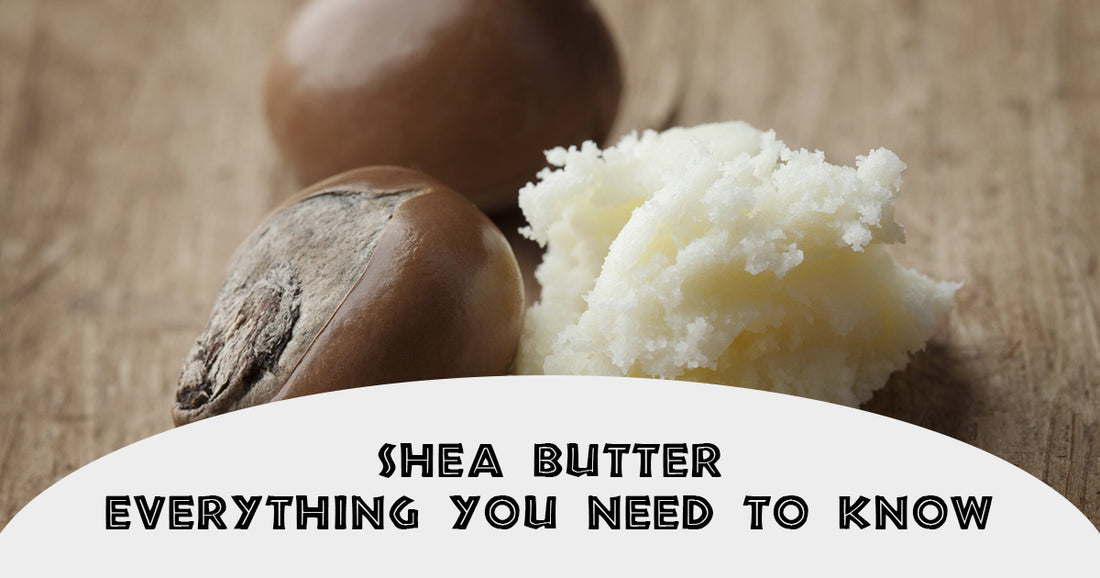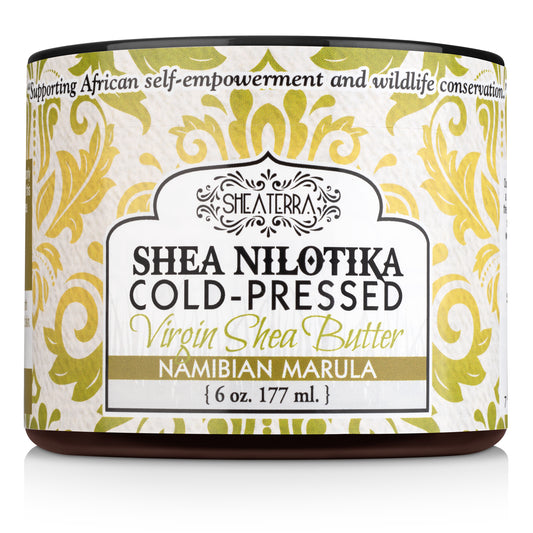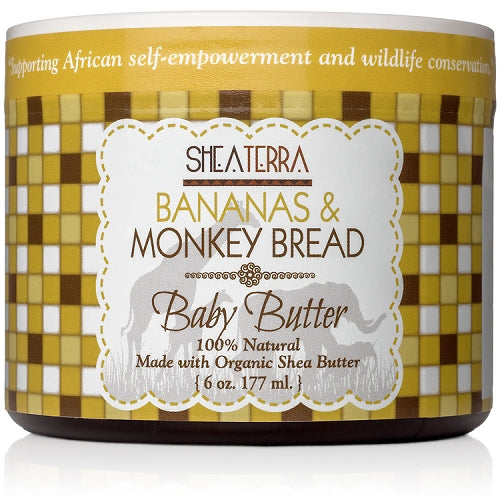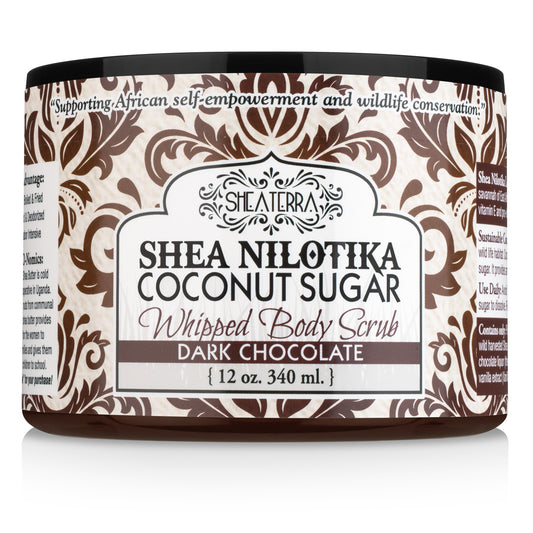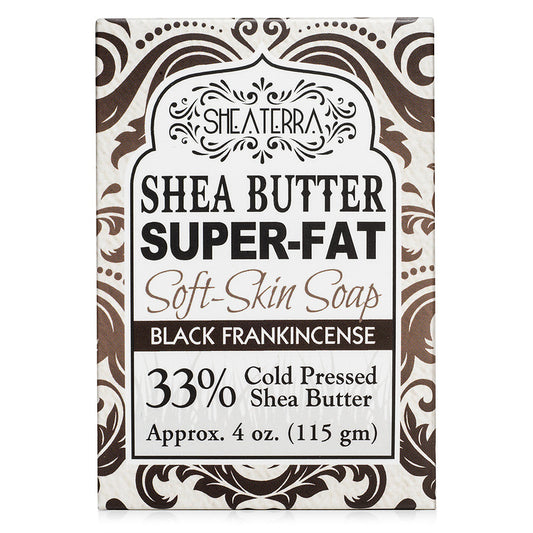Hailing from indigenous Africa, Shea Butter is another one of mother nature’s gifts to mankind. Driven from the nuts of the African Shea tree, Shea butter is scientifically a natural, plant-based fat, aka Vitellaria paradoxa. With a rich history spanning centuries in West Africa being used as a moisturizer, emollient, and healing substance for skin and hair, Shea butter is truly a work of art.
Tired of trying a myriad of skincare routines not worth a dime? Well, say goodbye to skincare products solely advertised to promote consumerism. Shea butter is your skin’s savior and something you're not going to let go of for the rest of your life.
So…What Is Shea Butter?
Shea butter is composed of a high concentration of essential fatty acids, vitamins A & E, and many other antioxidants. When applied, these nutrients work together to hydrate and protect the skin, also boosting the natural healing process to soothe inflammation.
Due to the numerous anti-inflammatory compounds, it also helps reduce the occurrence of certain skin conditions, such as acne, eczema, scaliness, and more. Shea’s buttery texture is composed of 60% fat, this quality makes it ideal for skin penetration.
The Shea nuts are sourced directly from Africa because the Shea tree is indigenous to Africa and grows naturally in the dry Savannah spanning from West Senegal to South Sudan in the East, however, the butter’s texture can vary a little.
Is Shea Butter Good For Your Skin?
There is a plethora of reasons people should consider Shea butter for skin problems and enhancement. Hydration is one of the biggest problems regarding skin in the west. Well, not anymore because Shea butter contains rare fatty acids, such as oleic acid, stearic acid, and linoleic acid which makes it the perfect moisturizer to help hydrate the skin and prevent dryness.
It is also the new black of skincare routines across the world mainly because it works for both oily and dry skin types. It can also help shield the skin from modern environmental stressors like pollution and UV radiation. Shea butter is also popular for containing an abundance of antioxidants, such as Vitamin A and E which help shun fine lines and wrinkles by boosting collagen production in the skin.
...there’s more!
Anti-inflammatory compounds, like lupeol and cinnamic acid found in Shea butter, have proven to help soothe the skin. Also making it a compelling solution to treat skin conditions such as psoriasis, eczema, and rosacea, which often fall under the umbrella of inflammatory and irritating skin.
Wait, there’s more! The sole ethos of the Shea butter craze in the west is its exceptional healing properties. It contains triterpenes compounds that provoke the production of new skin cells, and help reduce the appearance of scars, skin blemishes, and stretch marks.
The Best Way To Use Shea Butter:
Use on Skin
Shea butter is one of the most versatile skincare products out there. The most common use of it in the west is as a moisturizer to hydrate and enhance the skin. Just, get a small glob of it and apply it to the face or body and massage the skin gently until it is fully absorbed. Say hello to the perfect solution for people with sensitive skin, time to say bye to the fancy irritating lotions you’ve been using forever.
As mentioned before, it is also a good alternative to ineffective lotions for skin inflammation-related problems. Shea butter naturally can penetrate all types of skin swiftly. Middle-aged and older women in particular love Shea butter because it gives their skin a younger, healthier, and pompous look.
Soothe your Lips
Nature's lip balm, Shea butter is also the best natural solution for chapped lips, especially in the winter when lips go through hell and back. Just apply a small amount of Shea butter to the lips daily and your lips will thank you for the rest of your life. But it can also be infused with other organic ingredients, like coconut oil or beeswax, for a more intricate recipe.
Use on Hair (Irritation & Dandruff)
Fed up with a dry scalp? Tired of fighting issues like dull, dry, and frizzy hair? Then, Shea butter is your knight in shining armor, It’s soothing qualities can improve your scalp condition drastically. Separate your hair into segments, take a small dollop of Shea butter, and apply it to the spots in a circular motion.
You can say adios to the dull, dry, and frizzy hair by just opting for Shea butter as your pre-shampoo ritual. Touching up problematic spots regularly will result in much more manageable hair.
Use as a Massage Oil
Historians tell us that indigenous Africans initially used to use Shea Butter as a massage oil due to its incomparable soothing and healing powers.
The use of Shea butter has evolved over the centuries, the modern way is to melt Shea butter in a double boiler and directly add a few droplets of your favorite essential oil, like lavender or cedar wood.
Use as a Healing Balm
Skin problems like eczema, dermatitis, or psoriasis can be healed and soothed with the regular use of Shea butter. Just take a small dab and apply it to the affected areas, caress it gently, and voila! you’re halfway there already.
Shea butter has exceptional and proven anti-inflammatory and healing properties which help to dampen dried-up skin and relieve redness, itchiness, and irritation.
Know What Shea Butter To Choose
The are many variants of Shea butter available in the market but not all of them are the same. Also, sitting on the shelf Shea butter loses some of its initial healing qualities. Meaning, highly-refined and processed Shea butter is not as beneficial.
Here are some key factors to look for before purchasing Shea butter:
- The butter type - There are two types of Shea butter, refined and unrefined. Unrefined versions are more nutrient-rich and retain the iconic healing properties and normally have a beige color. Refined versions are used more in the commercial cosmetic industry to strip away the natural scent and color.
- Packaging - This is a key factor because Shea butter should always be packaged in airtight containers, like jars or tins, to prevent oxidization.
- Quality & Texture - Shea butter that is organic, high-quality, and pure is the best because it is mostly hand-processed. The texture can vary from smooth and creamy to think and discretely grainy depending upon the temperature it was stored at and the processes it went through.
- Price - The price is directly associated with the quality of the Shea butter as it is a premium product. Cheaper prices indicate clearly that the product is not as pure and is highly processed with chemicals and preservatives.
The Best Shea Butter For The Skin
At this point, you must be thinking to yourself, if there are so many variants of Shea butter then which one is the best for the skin? The answer is simple, pure and unrefined Shea butter is the best.
The rawer it is the more benefits you can reap. Processed cosmetics use Shea butter as an additional ingredient to boost sales and prices but due to the extra chemicals involved in the production, the healing properties are stripped away from the fundamental essence of Shea butter.
Our East African Shea Butter is a best seller and one of the purest and organic versions available in the market at an affordable price. The Gold standard Ghana Gold Extra Virgin Shea Butter is also must try for people who want smoother skin and to heal skin problems like cracks, dryness, and inflammation.


